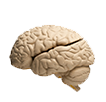Geriatric psychiatry

Geriatric Psychiatry: Enhancing Mental Health in Older Adults at Mysterious Minds Institute
At Mysterious Minds Institute of Mental Health and Neuropsychiatric Sciences, we are dedicated to improving the mental health and well-being of older adults. Geriatric psychiatry focuses on diagnosing, treating, and managing mental health conditions that are common among seniors. As we age, it’s natural for our physical and mental health to change, and sometimes, these changes require specialized care. Our geriatric psychiatry services provide compassionate and personalized care to help seniors lead fulfilling and independent lives.
What is Geriatric Psychiatry?
Geriatric psychiatry is a specialized branch of psychiatry that addresses the unique mental health needs of older adults, typically aged 65 and above. It focuses on the treatment of age-related mental health conditions, including dementia, depression, anxiety, and cognitive impairments. Geriatric psychiatrists are trained to understand the complex interactions between aging, mental health, and physical well-being, providing a holistic approach to treatment and care.
Common Mental Health Issues in Older Adults
Mental health concerns in older adults can often go unrecognized, yet they are just as important as physical health concerns. Some of the most common conditions treated in geriatric psychiatry include:
- Dementia: Conditions like Alzheimer's disease and vascular dementia are common among older adults. These conditions lead to a gradual decline in memory, cognitive function, and the ability to perform daily tasks. Early intervention is crucial for managing symptoms and improving quality of life.
- Depression: Depression in seniors may be overlooked, as symptoms can manifest as fatigue, irritability, or withdrawal from social activities. We help seniors manage depression, reducing its impact on daily functioning and overall well-being.
- Anxiety: Many older adults experience feelings of anxiety, often related to health concerns, loss of loved ones, or financial stress. Geriatric psychiatry can provide coping strategies and therapeutic approaches to alleviate these feelings.
- Psychosis: Older adults may sometimes experience episodes where they see, hear, or believe things that aren’t real. This can include things like hearing voices, seeing things that aren’t there, or holding on to certain beliefs that may seem unusual or out of character. These symptoms are often connected to conditions like dementia or other medical issues that affect the brain. Our team understands the impact this can have on the individual and their loved ones and is here to help identify and manage these symptoms with compassionate, effective care.
- Cognitive Decline: As we age, some degree of cognitive decline is common. However, more severe impairments, such as mild cognitive impairment (MCI), can lead to challenges with memory, concentration, and problem-solving. We offer treatments to manage cognitive decline and preserve cognitive function.
- Sleep Disorders: Aging can often bring changes in sleep patterns. Conditions like insomnia, restless leg syndrome, and sleep apnea can disrupt quality sleep, affecting overall mental and physical health. We provide solutions to improve sleep quality in seniors.
Why Choose Mysterious Minds Institute for Geriatric Psychiatry?
- Specialized Expertise: Our team of experienced geriatric psychiatrists understands the unique challenges of mental health in older adults. We use advanced diagnostic tools and evidence-based treatments to address the complex needs of seniors.
- Holistic Treatment Approach: We take a comprehensive approach to geriatric mental health, integrating therapies such as cognitive-behavioral therapy (CBT), psychotherapy, and medication management to ensure the best outcomes for seniors.
- Patient-Centered Care: At Mysterious Minds Institute, we emphasize compassionate care. We work closely with each patient and their family to create a treatment plan tailored to their individual needs, preferences, and goals.
- Family Support: We believe that families play an important role in the mental health of older adults. We provide guidance and counseling to families, helping them understand the conditions affecting their loved ones and how they can best provide support.
- Collaborative Care: Many older adults face a combination of physical and mental health challenges. We work collaboratively with other healthcare providers, including primary care doctors and neurologists, to ensure comprehensive care for seniors.
Effective Treatments for Geriatric Mental Health Conditions
Our geriatric psychiatry services offer a range of treatments designed to improve mental health and quality of life for older adults:
- Psychotherapy and Counseling: We offer individual and family counseling to help seniors navigate the emotional challenges associated with aging, including grief, isolation, and adjustment to health changes.
- Medication Management: For conditions such as depression, anxiety, and dementia, medication may be prescribed to manage symptoms effectively. Our team closely monitors medication use to ensure safety and efficacy, considering the unique needs of older adults.
- Cognitive Therapy and Rehabilitation: We offer specialized therapies to help improve cognitive function and slow the progression of cognitive decline. These therapies can also aid in memory enhancement and improving daily functioning.
- Behavioral Interventions: For seniors dealing with agitation, aggression, or other challenging behaviors, we provide behavioral interventions to promote safety and well-being.
Get Help for Your Loved One Today
If your loved one is struggling with mental health challenges related to aging, it’s important to seek professional help. Early intervention can significantly improve their quality of life.
Contact Mysterious Minds Institute to schedule a consultation with our geriatric psychiatry team. We are here to provide the care and support your family needs to navigate the mental health challenges of aging.




